Roman Catholic believers across Germany are celebrating the religious holiday of Corpus Christi with carefully arranged processions through villages and towns, often donning traditional costumes.
In eastern Germany, hundreds of Sorbs, a Slavic minority, participated Thursday in a procession in Crostwitz in the state of Saxony, where little girls dressed in long white and pink dresses and headscarves.
Further south, young Bavarian boys dressed in leather pants, or Lederhosen, as they joined a procession at lake Staffelsee in Seehausen near Murnau.
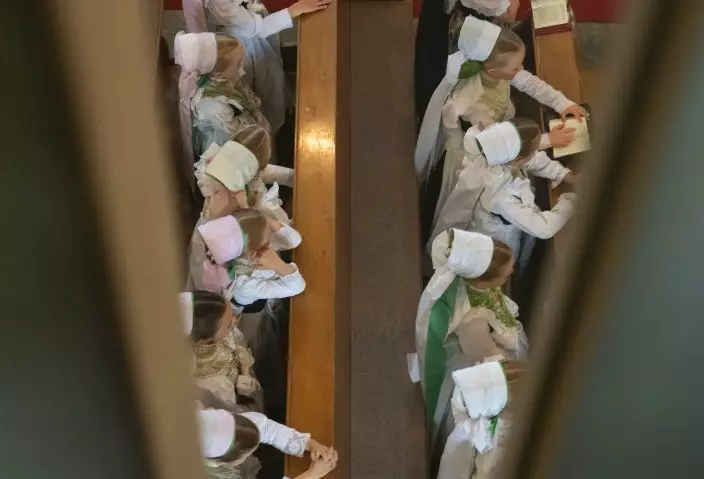
Children dressed in the traditional clothes of the Sorbs attend a holy mass during a Corpus Christi procession in Crostwitz, Germany, Thursday, June 20, 2019. The catholic faithful Sorbs are acknowledged as a national minority near the German-Polish border with their own language in eastern Germany. The procession to commemorate the solemnity of the body and blood of Christ has been a tradition in Lusatia (Lausitz) region. (AP PhotoJens Meyer)
The processions on Corpus Christi commemorate the biblical transubstantiation of bread and wine into the body and blood of Christ.
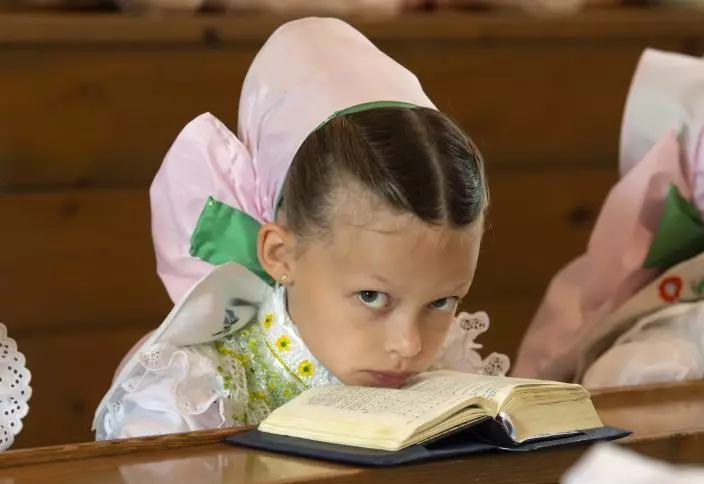
A child dressed in the traditional clothes of the Sorbs attend a holy mass during a Corpus Christi procession in Crostwitz, Germany, Thursday, June 20, 2019. The catholic faithful Sorbs are acknowledged as a national minority near the German-Polish border with their own language in eastern Germany. The procession to commemorate the solemnity of the body and blood of Christ has been a tradition in Lusatia (Lausitz) region. (AP PhotoJens Meyer)
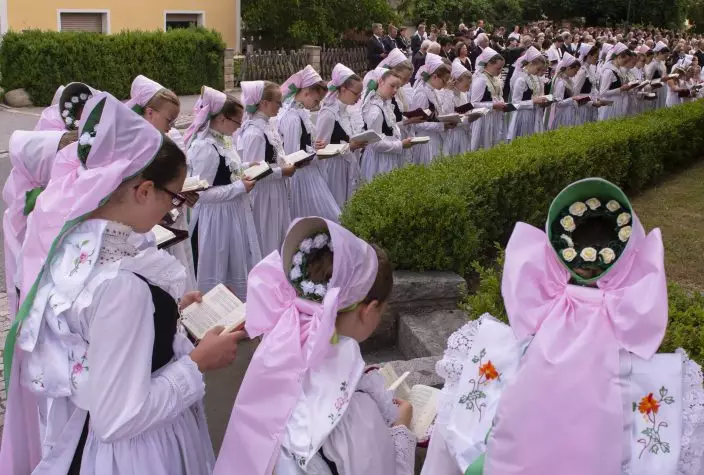
Children dressed in the traditional clothes of the Sorbs attend a Corpus Christi procession in Crostwitz, Germany, Thursday, June 20, 2019. The catholic faithful Sorbs are acknowledged as a national minority near the German-Polish border with their own language in eastern Germany. The procession to commemorate the solemnity of the body and blood of Christ has been a tradition in Lusatia (Lausitz) region. (AP PhotoJens Meyer)
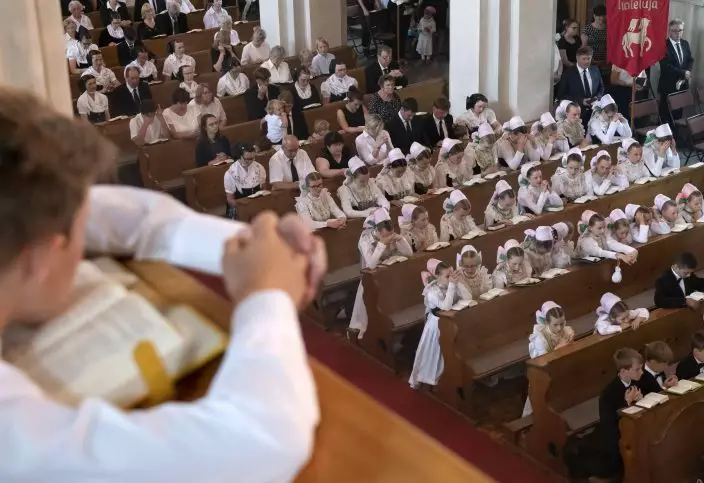
People dressed in the traditional clothes of the Sorbs attend a holy mass during a Corpus Christi procession in Crostwitz, Germany, Thursday, June 20, 2019. The catholic faithful Sorbs are acknowledged as a national minority near the German-Polish border with their own language in eastern Germany. The procession to commemorate the solemnity of the body and blood of Christ has been a tradition in Lusatia (Lausitz) region. (AP PhotoJens Meyer)
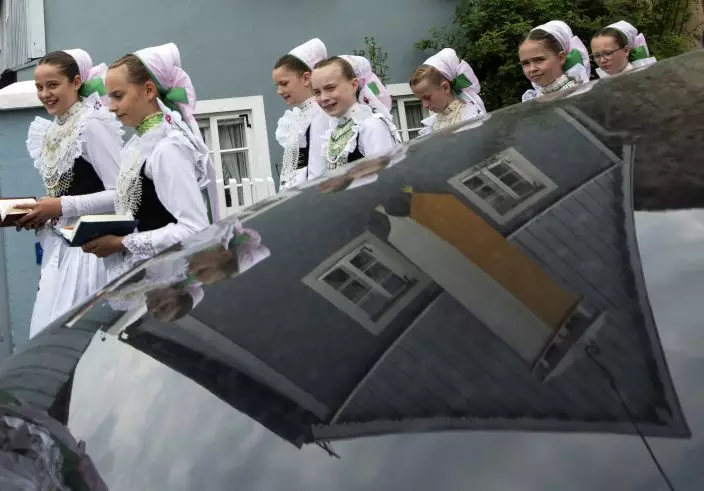
A house reflects in a car during a Corpus Christi procession in Crostwitz, Germany, Thursday, June 20, 2019. The catholic faithful Sorbs are acknowledged as a national minority near the German-Polish border with their own language in eastern Germany. The procession to commemorate the solemnity of the body and blood of Christ has been a tradition in Lusatia (Lausitz) region. (AP PhotoJens Meyer)
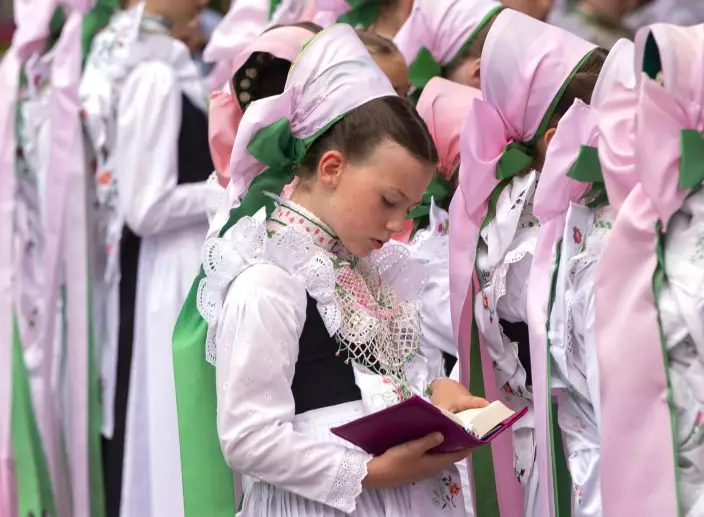
Children dressed in the traditional clothes of the Sorbs attend a Corpus Christi procession in Crostwitz, Germany, Thursday, June 20, 2019. The catholic faithful Sorbs are acknowledged as a national minority near the German-Polish border with their own language in eastern Germany. The procession to commemorate the solemnity of the body and blood of Christ has been a tradition in Lusatia (Lausitz) region. (AP PhotoJens Meyer)
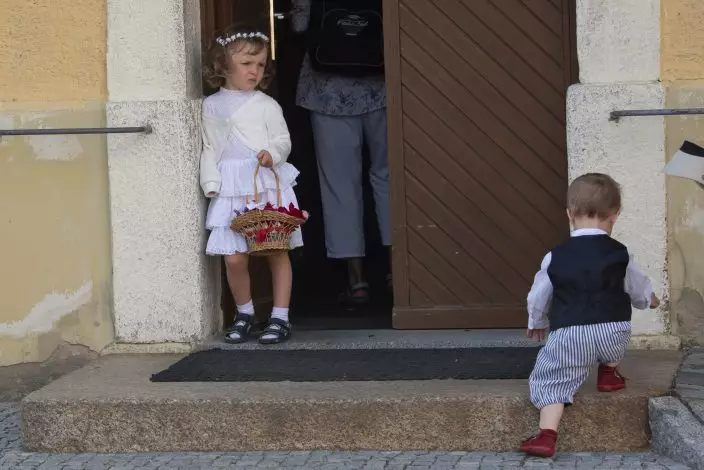
Three years old child Milena, left, dressed in the traditional clothes of the Sorbs waits in front of the church entrance during a holy mass during a Corpus Christi procession in Crostwitz, Germany, Thursday, June 20, 2019. The catholic faithful Sorbs are acknowledged as a national minority near the German-Polish border with their own language in eastern Germany. The procession to commemorate the solemnity of the body and blood of Christ has been a tradition in Lusatia (Lausitz) region. (AP PhotoJens Meyer)
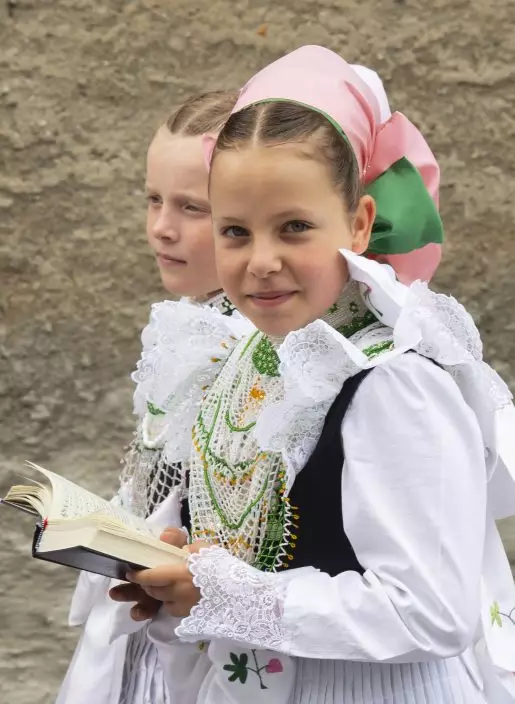
Children dressed in the traditional clothes of the Sorbs attend a Corpus Christi procession in Crostwitz, Germany, Thursday, June 20, 2019. The catholic faithful Sorbs are acknowledged as a national minority near the German-Polish border with their own language in eastern Germany. The procession to commemorate the solemnity of the body and blood of Christ has been a tradition in Lusatia (Lausitz) region. (AP PhotoJens Meyer)

People in their boats attend the Corpus Christi procession at lake Staffelsee in Seehausen near Murnau, Germany, Thursday, June 20, 2019. (AP PhotoMatthias Schrader)
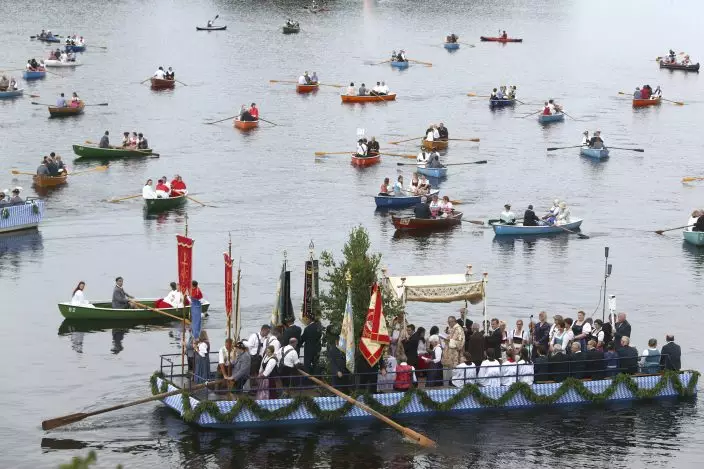
People in their boats attend the Corpus Christi procession at lake Staffelsee in Seehausen near Murnau, Germany, Thursday, June 20, 2019. (AP PhotoMatthias Schrader)
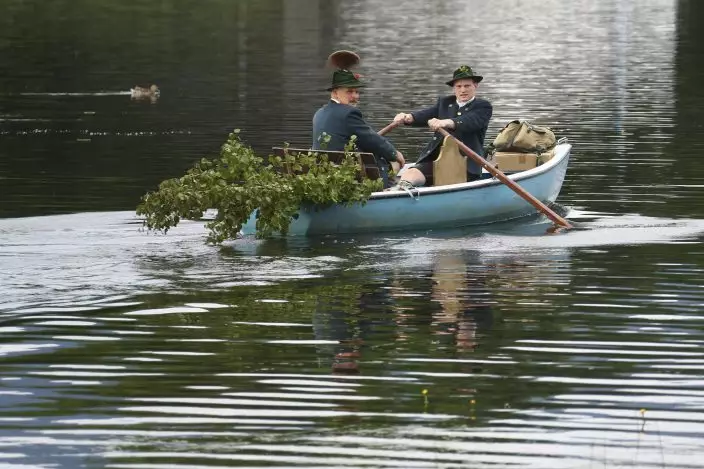
People dressed in traditional clothes take part in a Corpus Christi procession at lake Staffelsee in Seehausen near Murnau, Germany, Thursday, June 20, 2019. (AP PhotoMatthias Schrader)


